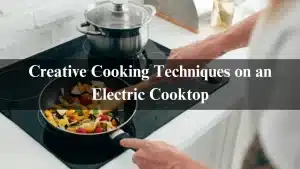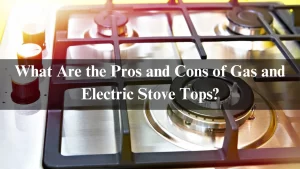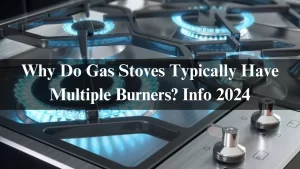Today’s induction cooktops are in top trend due to their performance and many features. Almost all people want to replace their old cooktop with an induction cooktop. But if you want to use an induction cooktop you should understand induction cooking.
Induction cooktop gives you many features to do better cooking like temperature control, boost function, pan detection, etc but you want to know about how to use all these cooking techniques of an induction cooktop.
In this article, we will cover the whole topic of cooking techniques, But our first topic is to understand induction cooking, then talk about the basics setting of an induction cooktop. After setting, talk about the right cookware and learn the cooking techniques.
Table of Contents
Understanding Induction Cooking Technology
To effectively utilize an induction cooktop, it’s crucial to grasp how it operates. Unlike traditional cooktops, which rely on heating elements, induction cooktops use electromagnetic fields to generate heat directly in the cookware. This means that only pots and pans with a magnetic layer will work on induction surfaces.
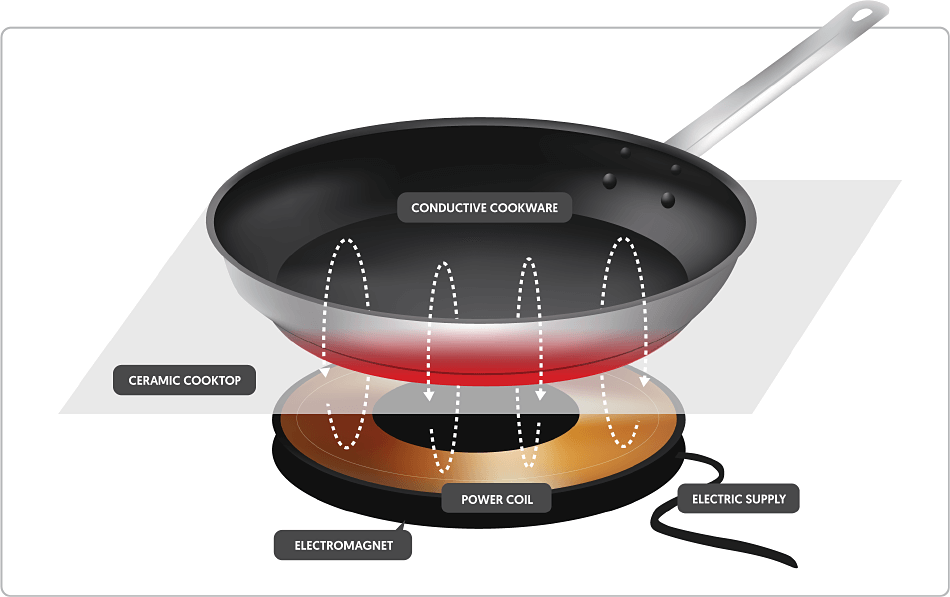
Key Points:
- Working Principle: Induction cooktops create heat through electromagnetic induction, allowing for quick and efficient cooking.
- Cookware Compatibility: Only ferrous materials (those containing iron) will function on induction cooktops.
Suitable Cookware for Induction Cooktops
Choosing the right cookware is vital for the efficient operation of your induction cooktop.
| Type of Cookware | Induction Compatibility | Efficiency | Best Uses |
| Stainless Steel | Highly Compatible | Excellent | General cooking |
| Cast Iron | Fully Compatible | Retains Heat | Slow cooking, frying |
| Copper/Aluminum | Not Compatible | Low | Avoid for induction |
| Non-Stick | Compatible with induction base | Moderate | Quick, low-fat cooking |
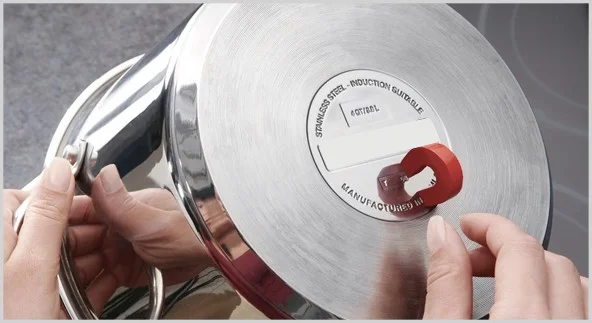
Important Considerations:
- Avoid Non-Compatible Cookware: Cookware made from aluminum, copper, glass, and non-magnetic stainless steel will not work on induction cooktops.
- Choose the Right Material: Opt for cast iron, carbon steel, or induction-ready stainless steel for optimal performance.
Basic Settings of an Induction Cooktop
After selecting your cookware, familiarize yourself with the essential settings of your induction cooktop.
Heat Optimization
Ensure you are using the right size cookware corresponding to your burner size. Oversized pans can lead to uneven heating, leaving some food undercooked.
Precise Temperature Control
Induction cooktops allow for precise temperature adjustments. Instead of the traditional high, medium, or low settings, you can select specific temperatures (e.g., 100°F to 450°F) via buttons or a touch screen.
Cooking Time
Induction cooktops heat food faster than traditional methods. Keep an eye on your cooking to prevent burning, especially for tasks like stir-frying, searing, and sautéing.
Safety Features
Induction cooktops come with several safety features, including:
- Auto Shut-Off: Activates when cookware is removed.
- Child Lock: Prevents unintended operation.
- Pan Detection: Ensures the cooktop only activates with suitable cookware.
- Residual Heat Indicators: Warns if the surface is still hot.
Cooking Techniques for Induction
Searing and Frying
Induction is excellent for searing due to its ability to provide high, even heat.
- Tip: Use cast iron or stainless steel pans for better heat retention. Preheat the pan before adding oil and food.
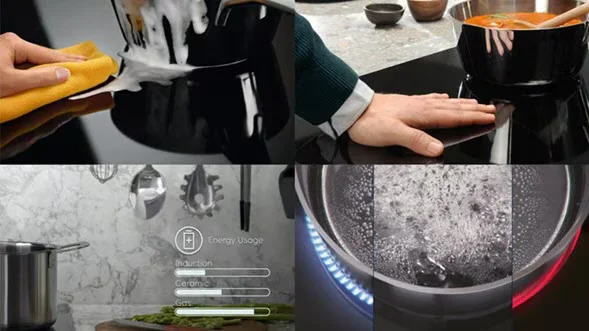
Slow Cooking and Simmering
Induction allows for steady low temperatures, perfect for simmering.
- Tip: Use heavy-bottomed pots to maintain even heat and avoid constant monitoring.
Making Sauces
Induction cooktops excel at maintaining low, consistent heat for sauce preparation.
- Tip: Set the cooktop to the lowest setting, stirring frequently to prevent scorching.
Achieving Optimal Results with Induction Cooking
To ensure you get the best results when using your induction cooktop, keep these tips in mind:
- Choose the Right Cookware: Select flat-bottomed pans that match the burner size for efficient heat transfer.
- Avoid Small Pans: Small pans may not be detected, resulting in inadequate heat.
- Keep It Clean: Promptly clean spills to maintain performance and avoid damaging the surface.
- Safety Measures: Avoid heavy items on the cooktop and keep magnetic objects away to prevent interference.
Top 8 Recipes Perfect for Induction Cooktops
Induction cooktops excel at various recipes, thanks to their precise temperature control and rapid heating. Here are eight delicious options to consider:
- Stir-Fries
- Recipe: Chicken and Vegetable Stir-Fry
- Tip: High heat for quick cooking.
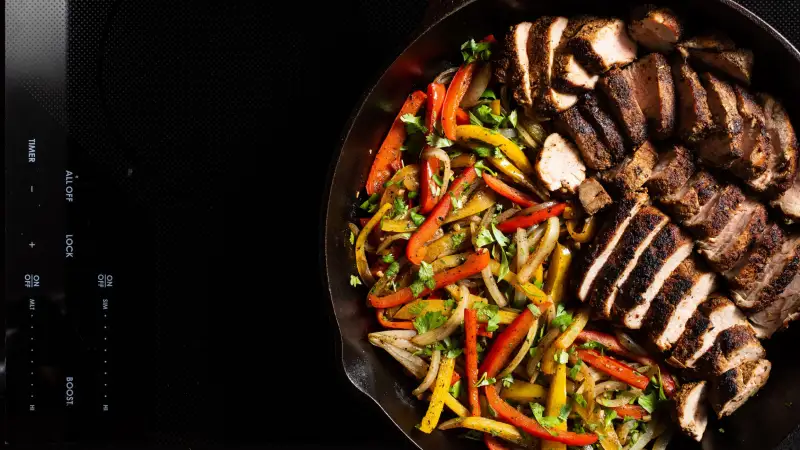
- Risotto
- Recipe: Mushroom Risotto
- Tip: Gradually add broth for creamy consistency.
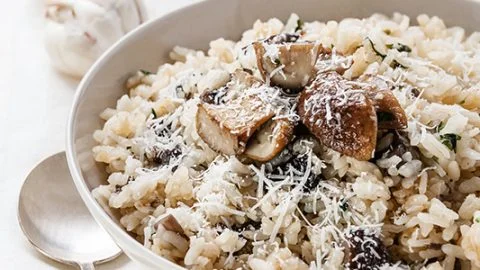
- Pancakes
- Recipe: Fluffy Buttermilk Pancakes
- Tip: Even heating ensures perfect pancakes.
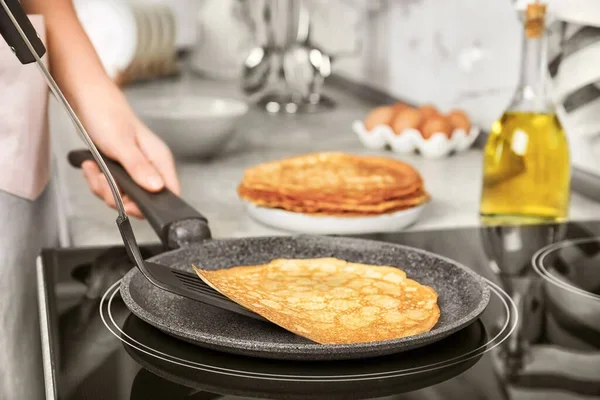
- Seared Steaks
- Recipe: Pan-Seared Ribeye Steak
- Tip: Use high heat for a perfect sear.
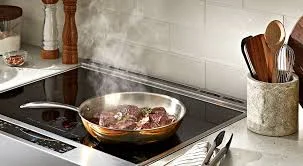
- Soups and Stews
- Recipe: Beef Stew
- Tip: Precise simmering for tender meat.
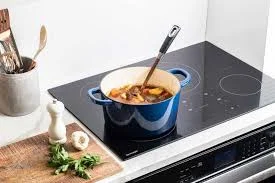
- Paella
- Recipe: Seafood Paella
- Tip: Even heat for perfectly cooked rice.
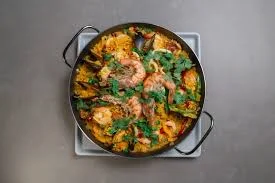
- Omelettes
- Recipe: Classic French Omelette
- Tip: Quick cooking for fluffy results.
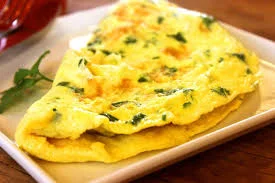
- Sauces
- Recipe: Hollandaise Sauce
- Tip: Precise control for delicate emulsions.
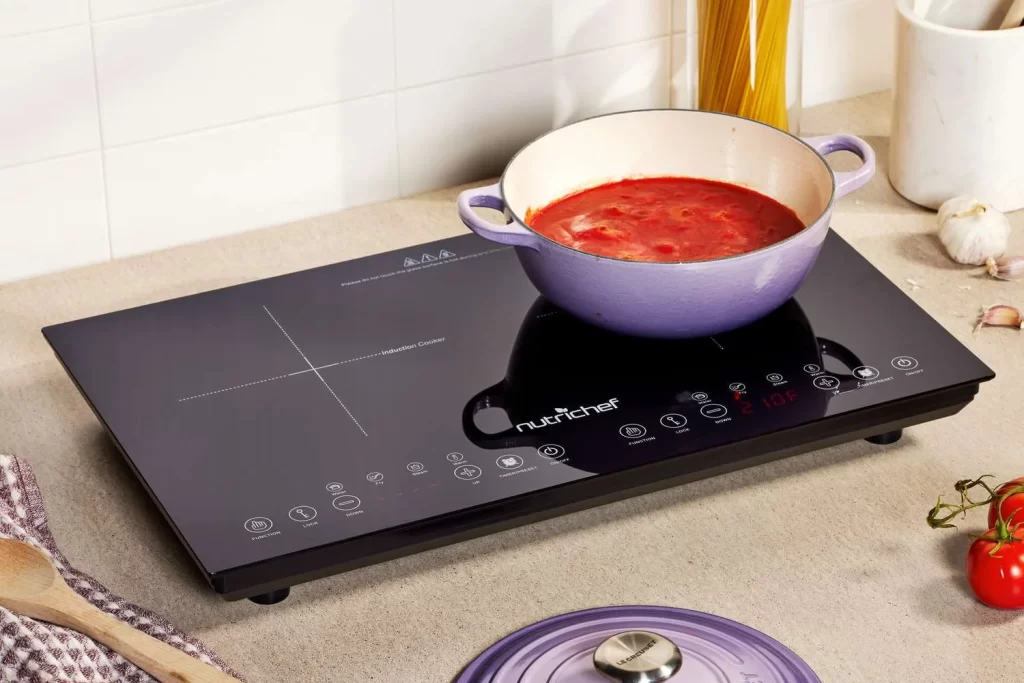
Using Induction Cooktops for Baking
Surprisingly, induction cooktops can assist with baking as well.
- Preheat Baking Pans: Quickly preheat pans for recipes like cornbread.
- Even Heat Distribution: Ideal for stovetop-to-oven cooking.
Common Mistakes to Avoid with Induction Cooking
- Overheating Oil: Start with low heat and increase gradually.
- Using Wrong Cookware: Ensure cookware is compatible for best results.
- Not Using the Right Settings: Take advantage of the precise control available.
You can also read : Choosing The Right Induction Cooktop For Your Kitchen 2024
Conclusion
Induction cooktops have become increasingly popular due to their advanced features and superior performance. To make the most of your induction cooktop, it’s essential to understand its unique cooking technology and adjust your techniques accordingly.
By mastering heat optimization, precise temperature control, and using the right cookware, you can achieve exceptional results. Additionally, the rapid heating and energy efficiency of induction cooktops makes them perfect for a variety of recipes, from quick stir-fries to delicate sauces.
Whether you’re searing a steak or simmering a stew, induction cooktops provide the control and versatility needed for precise and delicious cooking. Embrace these tips and recipes to elevate your culinary experience and enjoy the full benefits of your induction cooktop.
FAQs
Do induction cooktops cook faster than gas?
Yes, induction cooktops generally heat up faster than gas, boiling water in less time and offering better heat control.
Can I use regular pans on induction cooktops?
No, only magnetic cookware works on induction cooktops. You can test your pans with a magnet to see if they’re compatible.
Why does my induction cooktop make a clicking noise?
The clicking sound comes from the induction coils cycling on and off to maintain temperature. It’s normal but varies with cookware and settings.
Is induction cooking more energy-efficient than gas?
Yes, induction cooktops are more energy-efficient because they transfer heat directly to the cookware without losing energy to the surrounding air.


